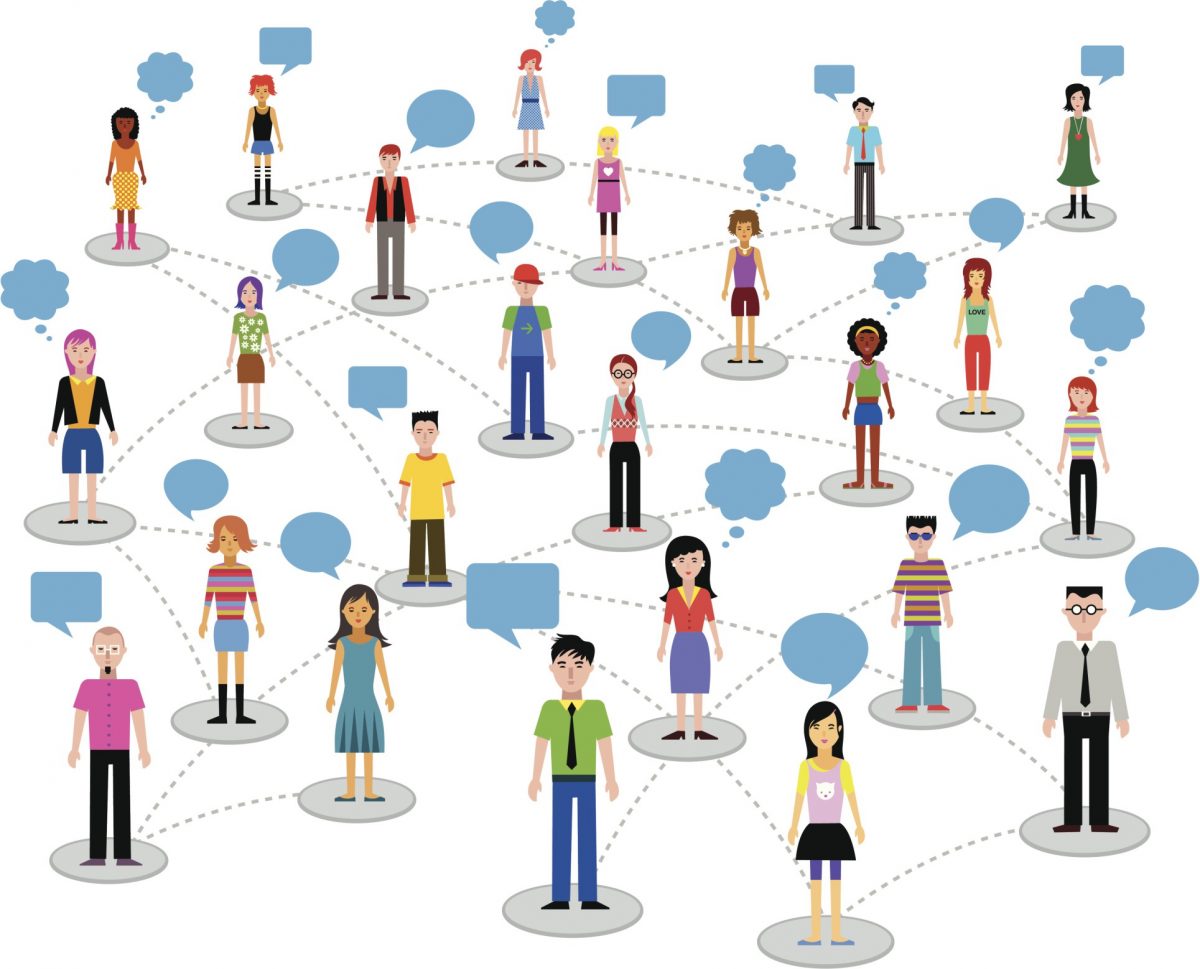The word “community,” which comes from the Latin communitatem, suggests a place whereby many souls of differing opinions and temperaments come together for discourse and bonhomie. In its public form, usually in the form of churches or bars or groups united by common interests that assemble in halls, communities can indeed be pretty wonderful and welcoming, with members working to make sure that disputes are swiftly resolved, that disagreements are cleared up, and that people take the necessary time to get to know each other so that they can become better attuned with each other’s quirks and eccentricities. But in its online version, “community,” which is little more than a groupthink dive where people of identical mindsets largely agree with each other, is a marvelous lie in which the slightest disagreement is often enough to paint a person with a differing opinion as something akin to a toxic and irredeemable sex offender, if not a sinister monster who should be taken out with a sniper rifle at a cocktail party, saddling the outlier with an ineffable stigma that she cannot shake.
Perhaps the heightened sensitivity to words and sentiments expressed digitally, often with relentless speed, has much to do with their inaccurately assessed force. For if we are not careful with our app settings, the buzzing push notifications from our phones turn any expression, even an innocuous one, into an alarm rather than a relatively amicable exchange of opposing views. This atmospheric dilemma, in addition to killing off vital dialogues we need to have about very serious problems, causes the recipient of the message to, in turn, transmute the disagreement into a greatly magnified monster, a contretemps in which the shameful warm blanket of toxic gossip greatly outweighs the initial thoughtfulness of the exchange. The push notification becomes a trigger. Enter trigger warnings. The original expression, even if it is proffered benignly and with a level head, becomes a violation of the community’s “safe space,” willfully misperceived because the first responders, pressured by the rewards of quick quips that are liked and favorited in the heat of the moment, are often reacting from a place of emotion rather than thought.
The responses are frequently laced with umbrage. The umbrage is heightened. The responses to the responses become increasingly magnified. Enter outrage and public shaming. People are blocked or ostracized, depending upon whether the message has “offended” a community member of prominent standing. And a benign colloquy turns what might have been a civil debate into a vulgar cartoon, whereby the “offender”‘s motives and intentions are placed under a strange microscope.
In most cases, there is never any attempt to take up the “offense” directly with the “offender.” And even if there is, the “offender,” by way of having “offended,” is greeted with steadfast suspicion (“Is there anything I can Google about this son of a bitch?” thinks the easily agitated responder before firing off another fusillade), which causes some “offenders” to become offenders without the quote marks: bona-fide trolls who capitulate their intelligence for the sake of “winning” the argument. And the original intellectual kernels that might have forged a meaningful essay or persuaded some party to change her mind become bar brawls expressed in 140 character sentiments. Calm people may wish to intercede and tone down the dialogue through reason, but the sheer amount of time and energy is usually never worth it. Because those who are hopped up on the fumes of outrage are determined to duke it out and become increasingly incoherent, even if they are possessed of high intelligence and would not speak this way if the other party was standing before them in a face-to-face, real life setting. Alleged “community managers” on websites, who are subject to high stress and frequent burnout and far too much content to manage, have either become too jaded by all the nastiness to nip any problem quickly in the bud or simply do not give a fuck. And who can blame them?
All this is a roundabout way of saying that it is nigh impossible for me to have any faith in online exchanges anymore, much less “community.” While I have adopted a pragmatic stance that might be interpreted as cynicism, there is nevertheless an optimistic part of me that wonders whether online communities might be fixed or redeemed if they remember that real world communities don’t have nearly this degree or frequency of bad blood. For now, I stand firmly against online communities. I believe online communities to be baleful wastelands of hatred and negativity. And I’m going to frequent them a lot less. Because I’m learning far more and having far more fun talking with people in person and on the phone.
The next time you get upset at someone for a few words she expresses online, you may want to ask yourself why you’re spending so much of your precious time condemning someone you’ve never bothered to meet and escalating the melee rather than marveling at what you might learn from another soul. If you can endure your uncle’s drunken FOX News monologue during Thanksgiving, surely you can find the strength and the wherewithal to take a step back and reach out to the people you’ve decided are unforgivable curs because they didn’t like your favorite band or they said something you mildly disagreed with or they actually exposed their feelings with the hope that others might understand them.
